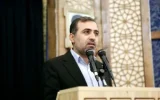
The spokesperson for the Energy Commission and the representative of Shiraz and Zarqan in the Islamic Council of Experts, referring to the formation of the Energy Optimization and Strategic Management Organization and the establishment of an account in this regard, announced that no deposits have been made to this in the past three years.
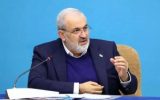
Stating that the drought management plans will continue without interruption, the Minister of Energy said: Despite the recent good rains, large parts of the country are still under severe water stress.

Arash Najafi criticized the lack of attention to consumption management and incorrect energy policies, saying that inaction in recent years has faced the country with inflation of nearly 1,000 percent, and without implementing optimization programs, any price reform will only increase economic pressure.

The Deputy Minister of Oil, warning about the intensification of energy imbalance and pressure drop in South Pars, considered the development of solar power plants and consumption optimization as a vital solution, and said: "The government's plan will go beyond the target of 12,000 MW of renewable energy."
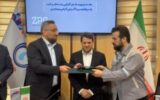
The memorandum of understanding to establish a joint venture to supply a 300-megawatt power plant between Iran's methanol giant and the country's largest utility company was signed at the Zagros Petrochemical Complex with the support of Dr. Shariatmadari, CEO of Persian Gulf Holding, and in the presence of Dr. Abbaszadeh, Deputy Minister of Oil and CEO of the National Petrochemical Company.

Navid Hedayatifar, referring to the gas imbalance crisis in winter, said that replacing 20 million worn-out heaters with high-efficiency heaters could reduce household consumption and allocate the released gas to industries.
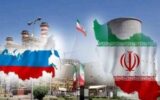
Following Ukraine's attacks on Russian oil refineries and the reduction in the country's fuel exports to Central Asia, Iran has a unique opportunity to fill Russia's void in regional markets. But can Iran seize this opportunity despite sanctions and domestic challenges?
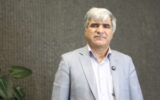
Winter is coming, and like every year, the issue of reducing gas consumption in the domestic sector and the challenge of energy imbalance is once again highlighted. Energy expert Hossein Mirafazli warns that excessive dependence on gas for home heating is a strategic mistake that has faced the country with an energy imbalance crisis during the cold season. He emphasizes the need to establish a Ministry of Energy, promote incentive schemes, and utilize modern technologies to reduce gas consumption.

The Seventh Development Plan aims to prevent daily waste of 1.285 million barrels (US) of crude oil equivalent from the energy produced in the country, equivalent to more than 150 million cubic meters of gas; an action that has provided an attractive market and a valuable opportunity for the presence of private sector companies in the field of engineering and technology.

Emphasizing the need for convergence in solving the energy imbalance, an official official said: Holdings and petrochemical companies should use all available capacities to establish an energy management system.










